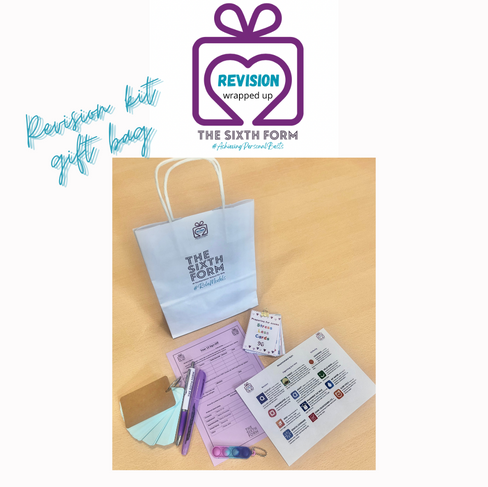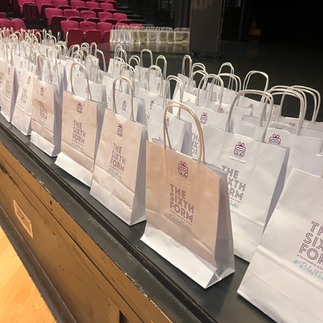As we approach the final week of external exams, it seems an opportune time to reflect on the approach we have taken to exam preparation this year for Year 13. Traditionally, after two rounds of Pre-Public Examinations (PPEs/’mocks’) in January and March, we have allowed Year 13 students to undertake study leave once external exams are fully underway. Pre-Covid, this meant that study leave began just before the May half term holiday. Since Covid, however, the exam series has extended, and now seems to creep earlier each year. Granting study leave early in May seems like a long time to leave Year 13 ‘on their own’ with independent study ahead of their crucial final exams, and also curtails potential teaching time (especially for subjects with exams scheduled later in the series, such as the sciences and maths). In addition, since Covid, we have noticed that our students have needed much more support with independent learning than they have in the past, coupled with an increase in mental health concerns and more necessary interventions around student wellbeing during the same time period. These factors combined led to lengthy discussions at SLT level around the value versus the risk of granting study leave. Collectively, the decision was taken to approach the exam preparation period differently this year. I was tasked with coming up with an alternative plan.
In planning our alternative approach, I was conscious of balancing our preparations for Year 13 with the provision we already have in place for Year 11. Our ‘Exam School’ for Year 11 has been running successfully for a number of years, with students having booster ‘Just in Time’ sessions immediately before each of their timetabled exams. After studying the plans for this, it was not possible to adopt the same approach simultaneously with Year 13, due to the crossover of staff who teach both Year 11 and 13. Therefore, I had to come up with a plan that allowed us both to maximise time with their subject expert teachers, coupled with an approach that Year 13 (and parents/carers) might see as personally beneficial to them, offering bespoke support. Thus, #RevisionWrappedUp was born.
The approach had four key aims:

With these aims in mind, I tried to find an approach that balanced the availability of staff in school with more time investment in our students. The approach therefore worked as follows:
We held a PPE results day in February after the first round of PPEs, to add a sense of urgency and ensure all Year 13 students had a 1:1 conversation with a senior member of staff to pick up any issues earlier in the year.
I designed the ‘Revision Wrapped Up’ logo, with positive framing in mind.
A #RevisionWrappedUp launch assembly was held, explaining the programme to students, and issuing each student with a #RevisionWrappedUp revision kit gift bag (more on this later!).
Students continued to attend taught lessons until their last exam in each subject, at which point they could be signed off by their subject leader for each course (and the register could therefore be X-coded from that point onwards for each course in turn).
We appointed a temporary Study Centre Supervisor (who, happily, is a qualified A-level Psychology teacher) to supervise our silent study centre.
The silent study centre had its own Chromebook trolley, solely for Year 13 use, and this was relocated to our school restaurant once the study centre became an exam venue.
Snacks were provided in the study centre – study for one lesson in silent study = access to a snack!
Student voice was gathered: students were sent a Google form asking them what topics they would like to focus on during revision lessons – responses were then shared with subject staff.
Students were offered bookable 1:1 support slots with key staff for support with organisation, study skills, revision techniques, wellbeing support and psychology research methods.
We booked our NHS Mental Health Support Team (MHST) for an assembly on managing exam anxiety.
Our Student Leadership Team held a ‘Coffee, Cake and Confidence’ café on managing exam stress, with the MHST and our school counsellor on hand to offer advice.
Our weekly, 'B.Well' wellbeing café was available for Year 13 every Wednesday throughout the period, with our school counsellor attending for 1:1s.
I hope it is clear that wellbeing was very much at the heart of our approach. We wanted to encourage our students to see this approach in positive terms: we didn’t want them to focus on the concept of the removal of study leave, but rather the addition of provision and support. Whilst some students’ initial response at the launch assembly was disappointment in not being granted study leave, most students appeared to appreciate the additional layers of support being offered.
The launch assembly provided us the opportunity to ‘gift’ revision kit bags to all students. These were on stage during the launch of the programme and students collected the bags as they left. Bags contained a pack of small revision crib cards, revision and wellbeing app recommendations, a pen, highlighter, stress toy, ‘exam stress less’ cards provided by our Student Wellbeing Lead, a course sign-off card and an all-important bar of chocolate! Students seemed to really appreciate the gift bags, and it has been great to see so many of them making use of the resources throughout the exam period!
Communication was a key aspect of our new approach. We planned the timings of the launch to students, staff and parents/carers to ensure all stakeholders received consistent information. We also followed up on this communication at regular intervals throughout the initial phase of the programme: #RevisionWrappedUp has been mentioned in all communications to Year 13 parents/carers, students and staff have received regular emails and messages in staff briefing/students’ ‘Monday Messages’ and we have promoted the approach on our social media channels, too. Framing the approach as a supportive measure to optimise outcomes for students has helped to ensure buy-in from the majority throughout.
Initially, we monitored who was making use of the study space and encouraged targeted students to utilise the provision if they were yet to engage. This worked well, and we definitely had more input for these students than we would have had in previous years. We also coupled this with strategic use of the 16-19 Tuition Fund to target online tuition for students most below target. Several students also engaged well with the 1:1 slots being offered by our staff, many of them booking in regular sessions throughout the exam preparation period. The success of both the silent study space and the 1:1s was largely down to the member of staff we employed, who expertly led this provision and whose support students (and staff!) genuinely valued.
Inevitably, as exams approach, some Year 13 students will always ‘vote with their feet’ and decide to remain at home to revise. Whilst we have seen a drop-off in attendance during the final phase of the examination period, it does feel as though we have maintained positive engagement with our Year 13 students for much longer than usual as a result of the programme.
The drop-off in the last couple of weeks for Year 13 has, however, allowed us to open up the programme (minus the gift bags!) to Year 12 ahead of their end of year examinations, too, which means they are accessing more support than they have done previously at this point in their studies; an added bonus!
Our next steps are to review the programme with all stakeholders. We will be asking for feedback from students and staff, and will continue to analyse attendance data before reviewing our outcomes in the summer. My gut feeling is that this approach has led to better engagement with more students and for longer, which can only be a good thing in this crucial final stage of their education. Our staff have been brilliant this year, adapting to the changed approach so flexibly and providing quality taught revision lessons for our students - I am very grateful that they responded so positively with very little prior warning. If we go forward with this approach in future, I would like to begin it earlier – potentially launching just before the Easter holidays, in order to maximise the impact overall.
I recognise that the approach I have outlined is specific to our school context and may not work for all schools/sixth forms. However, some of the principles - wellbeing, optimising teaching time, support, engagement, positive-framing, etc – I hope are applicable to all in considering the best approach for Year 13 exam preparation.










Comments